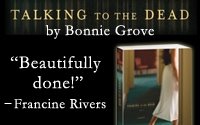Brains are funny things. Simmering pots, nothing like the filing cabinets described by early psychologists. There's nothing tidy about how our brains work, yet they are miraculously efficient able to recall, re-sort, re-imagine, reinvent; life, knowledge, intuition, and, most excitingly, creativity.
Writers love their brains.
A writer loves her brain because she doesn't understand it, is constantly surprised by it, and spends a great deal of time trying to get it work in ways that make sense, only to find that what makes sense does, in fact, not make sense to her brain.
There's no rushing a great idea. No way to hurry inspiration along. No effort of staring at a blinking cursor on an empty screen that will force good writing to spew forth.
To be a writer means you must learn the dance of the mind, and listen closely to the shift in music.
Mostly the song is low and slow, melodies that hide harmony in the background. The dance is maddeningly unhurried, in fact it often looks like standing still. And the longer you stand on the dance floor jerking your limbs around trying to force a beat, the longer you'll have to wait for the music to change.
It's when we leave the dance floor, stop staring at the blinking cursor on the blank screen, and head for the concession stand that we allow our brain to show its stuff.
It's always as the concession stand where the epiphany happens. And there's no time to run back to the dance floor. The music changes so suddenly, the tempo rises so quick, faster than your heart beats, and you must, right there with a box of M&Ms in your hand, start dancing as fast as you can. Eating M&Ms, and dancing the colours out on the battered rug under your feet.
Epiphanies are the junk food of thought in the sense that they must be consumed quickly, immediately, or they are lost forever. You can't pop a few candies then save the rest of the box for later. You must pour the box empty, write and write and write until there are no more words left in the box to write. You dump the sugar down the throat of inspiration in giant gulps both longing for the end to the mania and hoping it never, ever stops.
It stops.
As inexplicably as it began, it stops. You're back to staring at the blank screen.
But you've learned something. That simmering pot brain of yours is more than it seems. It's the simmer pot that produces the manic minutes at the concession stand. Without the slow plodding melodies, there can be no rock 'n roll junk food thought dumping sugar on the page ha-cha-cha.
Admire the melody.
Live for the jive candy.
I bid you good writing.
Subscribe to:
Post Comments (Atom)









3 comments:
Absolutely gorgeous, Bonnie.
And so true. I usually compare my writing to puzzle pieces. I can't see the whole thing just yet, except the small stories in pieces that I painstakingly rearrange, put together until somehow it creates story.
Susie: :) Thanks.
Nikole: Puzzle is a good analogy. I'm toying with a Gestalt notion of foreground and background...often, talking to authors who are in the midst of edits, they talk about how all the bits were in the story all along, but they had to bring certain elements front and centre, while other elements needed to retreat.
Post a Comment